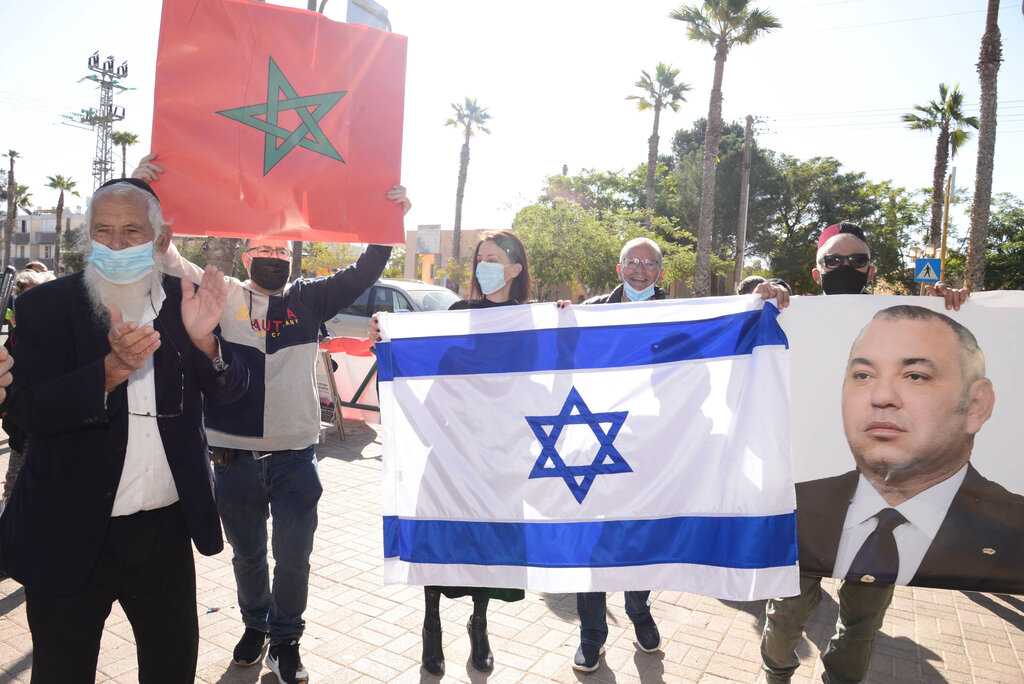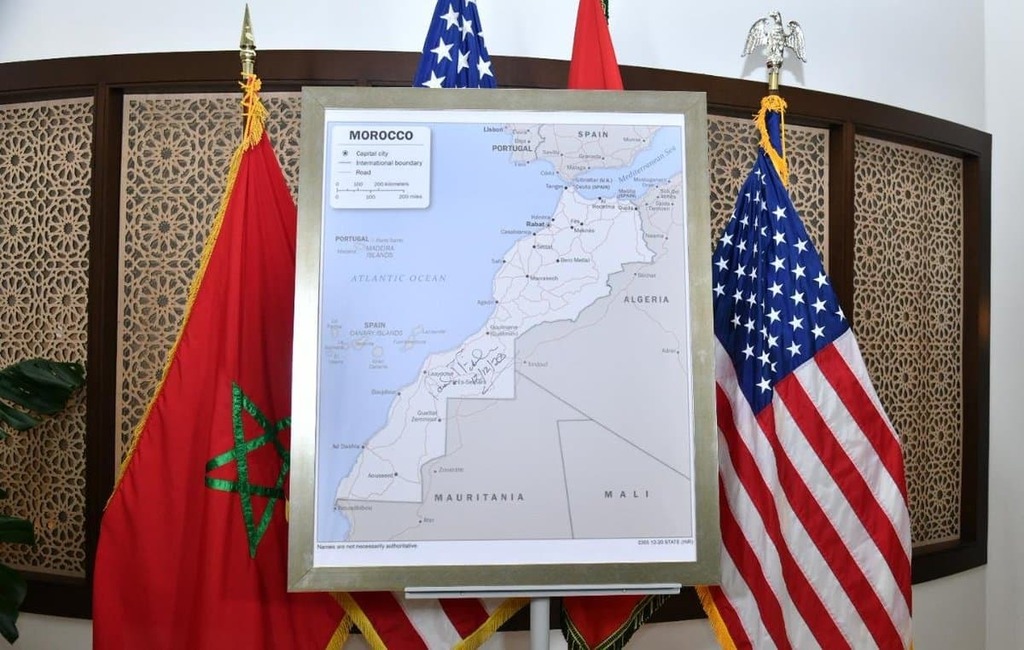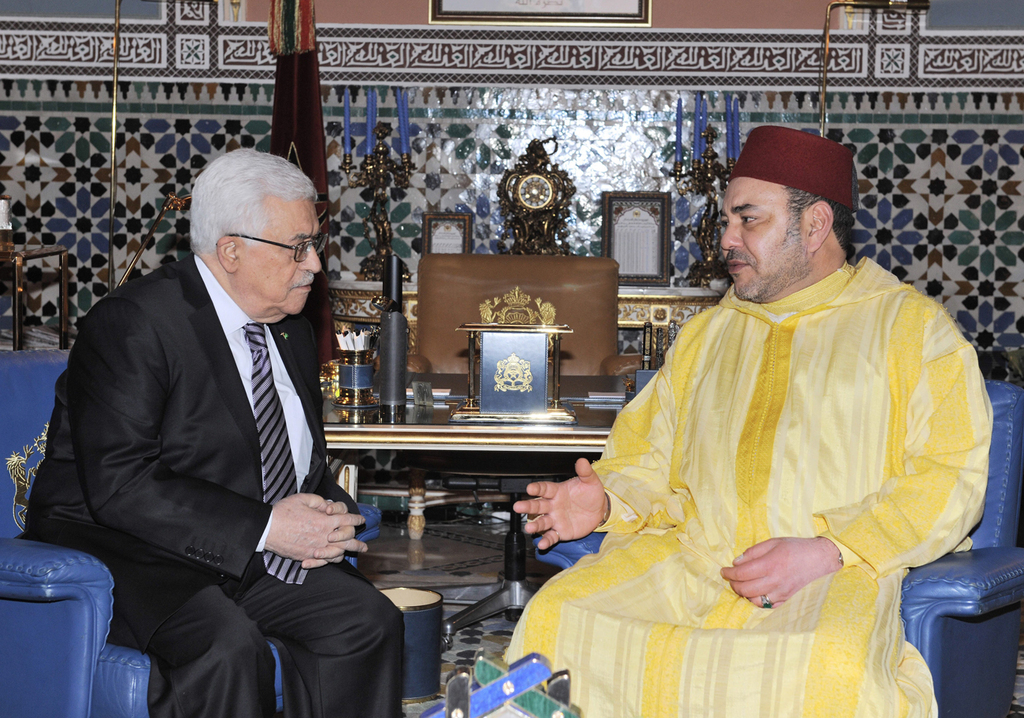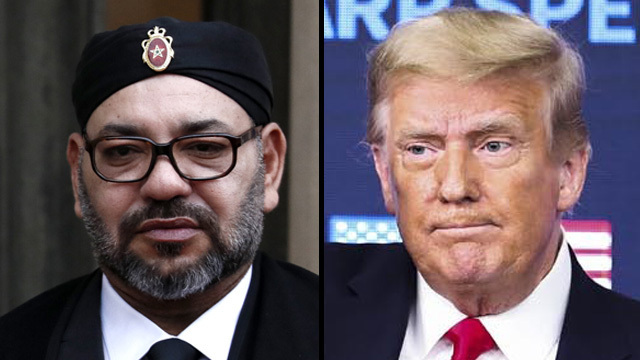For more than two years, King Mohammed VI of Morocco has been engaged in "African affairs" at the expense of the country's ties with the Arab world.
The royal palace in Rabat has often apologized for not attending summit conferences or meetings with Arab leaders, because it is "engrossed in sensitive and complicated matters in Africa."
4 View gallery


Israelis of Moroccan origin celebrate the news of the agreement between Jerusalem and Rabat
(Photo: Herzl Yosef)
When U.S. President Donald Trump announced the establishment of relations between Morocco and Israel on Saturday, it exposed the true focus of the Moroccan government - Western Sahara.
Eight African and Arab countries have announced the opening of new consulates in Laayoune, the largest city in Western Sahara, and seven other countries - led by the United States - have announced the opening of consulates in regional capital Dakhla. Perhaps Israel will also join this list.
Ostensibly, the new deal between Morocco and Israel looks like an agreement made by Trump via his son-in-law Jared Kushner and the royal palace in Rabat.
The move gives King Mohammed American permission to declare ownership over the Western Sahara, plus aircraft deals, plus generous economic assistance to overcome the coronavirus pandemic - and in return offers a limited temporary arrangement between Morocco and Israel that is still in its preliminary stages, which will ultimately lead to peace agreements and normalization between the two countries.
But Morocco's plans for Western Sahara will not be straightforward in execution. The leaders of the Polisario Front, which seeks to end Moroccan control over the area, are already warning that Rabat has sold out to gain control of the region and that no country in the world will recognize the Moroccan claim.
Meanwhile, Morocco, backed by the United States, is preparing to export goods from Africa through a state-of-the-art port to be built in Dakhla with a $1 billion investment that it sees as helping strengthen ties with Europe.
4 View gallery


Morocco displays its new map after the U.S. recognized its sovereignty over the Western Sahara
Even so, Mauritania, Algeria and Tunisia oppose Morocco's Israel deal, with the Tunisian president warning his people against forming ties with Israel and threatening very heavy penalties for anyone caught engaging in "normalization."
And of course, there is also the Palestinian issue. King Mohammed made a phone call to Palestinian President Mahmoud Abbas in Ramallah immediately after Trump tweeted about the establishment of new-old ties with Israel, making it clear that the two-state issue is dear to his heart. He was also careful not to make a similar call to Prime Minister Benjamin Netanyahu.
Abbas, meanwhile, does not dare come out in opposition to the king, and anyway believes that at the end of the process, the Palestinians will also get something.
4 View gallery


Palestinian President Mahmoud Abbas meeting with Moroccan King Mohammed VI in Marrakesh, January 2014
(Photo: AP)
Where will all this lead? Moroccan Foreign Minister Nasser Bourita is making sure that he has his priorities in order: First, the Western Sahara, then Morocco's ties with the United States, then the Palestinian issue, and only at the bottom of the list is Israel.
But Israel had ties with the Moroccans until the Second intifada, and who honestly cares if this time around it is a little more complicated?
After all, the Moroccan Minister of Economy and Trade Moulay Hafiz al-Alami announced on Saturday that from Monday, every Israeli businessperson interested in investing in Morocco is welcome to do so.
Trump, in his strange way, is leaving behind a positive legacy in the region, and Netanyahu can place another tick on his map of the Arab world. And the wave of rapprochement is far from over.


